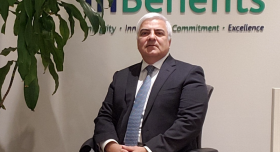

While target-date funds are now a staple in the Canadian defined contribution pension industry, it wasn’t always so.
Some of the first employers to bring target-date funds to Canada were George Weston Ltd. and Loblaw Companies Limited, says Alain Malaket, who is currently chief executive officer of InBenefits, but previously oversaw those organizations’ pension and benefits programs in Canada and the U.S. They rolled out TDFs to a Canadian audience in 2005.
“At the time, we were assessing the design and strength of our defined contribution plan and when we took a look at the data, I was concerned because there were probably two negative trends that really were identified,” says Malaket. “The first was that a large percentage of members that are typically defaulted into a fund on enrolment don’t necessarily then change their option in the future. So if they default to the wrong fund, unfortunately they don’t benefit from being in an optimal fund going forward. . . . The second one is, at one point, we offered à la carte funds and then similarly, we found people weren’t creating what would be defined as an optimal portfolio.”
To address these challenges, the organizations offered lifecycle funds, which introduced the concept of low, medium and high risk. But while many members chose a risk tolerance, they had trouble deciding when to update it, leaving them with sub-optimal allocations. “There’s a high level of risk based on market volatility when you make a switch from one of those funds,” Malaket says. “Because I also had the U.S. oversight or U.S. responsibilities, I was already exposed to freedom funds — or target-date funds — and the concept of a glide path is very powerful because it mitigates those types of issues.”
In the U.S., the organizations had seen positive results, which helped make the case to bring TDFs to Canada, says Malaket, noting that introducing TDFs paid off. “We saw a much better allocation — or less mismatch — between our members and the investment portfolios that they were using. This was a solution that was very powerful because it provides a tool that the members can rely on that rebalances itself professionally, doesn’t expose you to the market risk or these cliffs.”
In terms of TDFs, understanding the product is key and plan sponsors shouldn’t lose sight of member engagement and education. Particularly, Malaket takes issue with the ‘set-it-and-forget-it’ investment philosophy and believes continued member education is important. And while TDFs are an effective tool, it’s crucial to know the plan member population, he adds. “One-size-fits-all is not a silver bullet.”
Malaket also worked on the first annuity purchases at George Weston and Loblaws at a time when the annuity market in Canada was fairly young and small. “When I take a look at de-risking, we were at a point where some of the pension plans in Canada and the U.S. were either closed or there was minimal growth and you were seeing a lot of volatility in the markets and specifically on the balance sheets for a lot of employers. So we were looking at how you would immunize the company from volatility on the [profit and loss] statements because of the pension plan fluctuations.”
A key consideration during the annuity purchases was getting the timing right. “We worked with a number of consultants to try and figure out timing in terms of when to purchase, because the pricing can change pretty quickly on it,” he says. “You also want to make sure when you’re doing these annuity purchases that you’re not, in essence, just annuitizing the good liabilities, because then at some point you’re going to be stuck with the liabilities that are less defined, so the bad liabilities, if you want. You want to make sure that you’re managing that process and the timing of it as well.”
With the gradual decline of defined benefit plans and capital accumulation plans’ shift of risk to members, Malaket touts target-benefit plans as a solution that addresses some of the challenges facing the industry. “We’re heading for a storm. You’ve got markets that are extremely volatile and you’ve got a pandemic, you’ve got an unprecedented times and you’ve got CAP members who are looking to retire who are in a very vulnerable position. I think that if you’re looking forward, the question comes down to, ‘How do we protect members and help them retire in dignity?’ And we have a solution already in place and that’s these target-benefit plans or jointly sponsored pension plans.”
In his current role at InBenefits, which is a non-profit enterprise, Malaket works on pension and benefits administration and management services for two large target-benefit plans. The organization also recently implemented a new information technology platform, which will allow it to provide not-for-profit pension administration to other organizations.
Throughout his career, he’s worked for a third-party administrator, a pension regulator, the government, a consulting firm and a plan sponsor. He credits his diverse experience with his unique perspective. “Seeing things from different perspectives helps you come up with what I would refer to as a balanced solution.”
